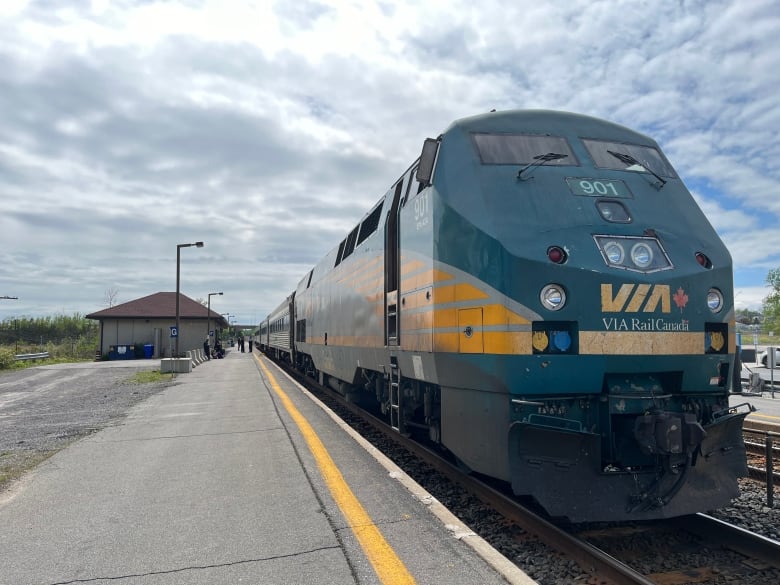
Alim Nathoo has no problem telling people he’s on the autism spectrum and when he did just that to a service manager on board a Via Rail train, he was relieved to be met with kindness.
The 36-year-old Mississauga, Ont., resident was returning home from a trip to Windsor in August when he met Andre Bergeron-Lekman.
“He asked me how I was,” said Nathoo, adding that Bergeron-Lekman also helped him figure out where to put his luggage.
“He said if there’s anything I need, come and speak with him.”
The pair also bonded over their shared love of Super Mario Bros. characters after Bergeron-Lekman pointed out that he liked the themed socks Nathoo was wearing.
It may not seem like much, but it was exactly what Nathoo needed.
“The reason why I think it’s very important just to be kind and to make people feel accommodated and welcome is it just makes it easier as well as better for us when it comes to situations that we may not know how to handle, anything that could be considered awkward for us, because for me I’m socially awkward myself,” he said.
“I sometimes have a hard time reading non-verbal cues, such as social and people cues sometimes. And when people are more verbal and direct, it helps me a lot.”
Bergeron-Lekman says being recognized for his kindness has been “humbling.”
“For me, it’s a regular Tuesday. Giving time and attention to our customers is part of what I do every day,” he said.
“The concerns that he was expressing [about his luggage] is something that anyone may have concerns with. Especially if you’re a first time traveller, sometimes things that may seem commonplace or insignificant to someone may be deeply anxiety inducing to another.”
What is the sunflower pin?
And while Nathoo is comfortable talking about his diagnosis with people, he understands that others with disabilities might not be. It’s why he wears a sunflower pin, which is gaining traction as a universal symbol that indicates someone has a hidden disability.
On the day he met Bergeron-Lekman, Nathoo was wearing his sunflower pin.
The pin and lanyard are part of the Hidden Disabilities Sunflower program. According to the program’s website, the symbol is a way to let people know that you “have a disability or condition that may not be immediately apparent.”
For example, the pin represents a variety of disabilities or conditions, such as asthma, dementia or hearing loss.
It continues to say that the flower is meant to symbolize to others that the person “may need a helping hand, understanding, or more time in shops, at work, on transport or in public spaces.”
Paul White, the organization’s CEO, who is based in London, previously told CBC News that the idea started eight years ago, when Gatwick Airport recognized it was easy to identify those with visible disabilities who might need help, but they couldn’t see those with invisible challenges who might require extra assistance.
White said the program was an instant success and continued to spread, including to places outside the United Kingdom, even more so after COVID-19 restrictions lifted and people started travelling again.
Via Rail expects to launch the program in 2026
There are many organizations that have started adopting the program in recent years.
In 2023, Metrolinx — which operates GO Transit and the Union-Pearson Express train — said it was the first public transit agency in North America to become part of the program.

Earlier this year, the Greater Moncton Roméo LeBlanc International Airport Authority in Moncton, N.B., said it would be joining the program.
According to the Hidden Disabilities Sunflower website, at least 15 other airports in Canada have also adopted the sunflower program, along with the airline Air Canada.
A spokesperson for Via Rail says the company plans to launch the program in 2026 as part of its accessibility plan.
As for Nathoo, he thinks the more organizations that join the better.
“I think for them to be aware of people with hidden disabilities, it makes it more easier for them to communicate and talk to us at the same time. And it’s not just bus drivers, it’s … even just regular members of the public too.”